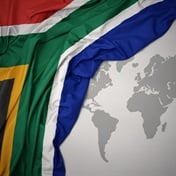The government’s plan to encourage private sector participation at some components of national carrier South African Airways presents Comair with “interesting opportunities.”
However, he said the approach of the public and private sector towards corporate governance was still very different, and that the government’s search for minority partners to invest in the airline would not be an easy one.
“Much of the South African aviation industry continues to revolve around the antics at SAA,” Venter said. He argued that the numerous bailouts and guarantees provided to the airline amounted to funding that bypassed parliamentary input and processes.
Venter said the collapse of governance and experience at the Civil Aviation Authority was a concern for the aviation industry.
He called the lack of experience at the aviation authority “nerve wracking” and said the organisation takes a “tick box” approach and fails to understand the broader implications of this methodology.
As a result, he said many airlines had begun to move towards self-regulation.
While a number of SAA’s competitors had gone out of business due to what Venter termed the national carrier’s “anticompetitive behaviour” since the local industry was deregulated in 1990, Comair has managed to survive.
Venter said safety, innovation, improving efficiencies and customer service were all “survival requirements” for any airline that wanted to prosper in the tough operating environment.
“Culture is the real differentiator,” Venter said.
Airlines had to foster a culture of safety among staff, as this was inherent to their sustainability.
“An airline has to rely on its entire staff for the safety of its operations. It can’t merely be a specialised role in an office.”
Innovation and ways to improve efficiency also have to be integrated into an airline’s culture.
“Aviation is a survival industry. You cannot have special interventions to cut costs, it is an inherent requirement,” Venter said.
Venter said the main driver of growth in Africa was the middle class, and while it had increased substantially, this was off a very low base. It could take 20 to 30 years for the middle class in Africa to grow to the size that would support extensive aviation operations and services within the continent.
“The only way to grow aviation in Africa will be through the subsidisation of airline tickets, or airports, or simply waiting for economic growth to fuel demand, which will take a long time.”
He said foreign carriers were responsible for 80% of passenger air traffic in and out of Africa. Ethiopian Air, the only African airline to have achieved a measure of success internationally, had done so by successfully connecting traffic through its hub in Addis Ababa, not by selling tickets within Africa.
“The money is just not there. Selling tickets within Africa on a point-to-point is very difficult,” Venter said.
In terms of the international aviation landscape, South Africa’s poor geographic location meant any locally operated airline trying to run an international route would not be able to achieve economies of scale: “South Africa is a difficult destination to get to as it is a long-haul flight from everywhere.”
There was enormous opportunity for South Africa to continue to grow as a tourism destination, but Venter concluded that there had to be a compelling value proposition to entice people to visit the country.




 Publications
Publications
 Partners
Partners








